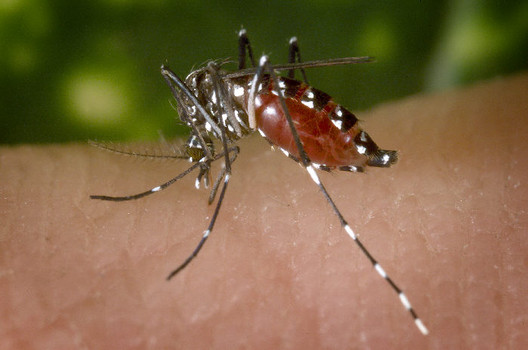Mosquito Borne Virus Spreading Uncontrollably in the Caribbean
 Those planning to travel to the Caribbean and surrounding areas need to use caution to avoid being stung by mosquitoes infected with the chikungunya virus being spread from mosquitoes to people. Spreading uncontrollably, the mosquito borne virus can cause painful symptoms that can last up to a few months, and in rare cases, can be fatal.
Those planning to travel to the Caribbean and surrounding areas need to use caution to avoid being stung by mosquitoes infected with the chikungunya virus being spread from mosquitoes to people. Spreading uncontrollably, the mosquito borne virus can cause painful symptoms that can last up to a few months, and in rare cases, can be fatal.
More than 4,000 cases of the mosquito borne virus and six deaths related to the bites have been confirmed in St. Martin, Martinique and Guadeloupe, along with other French Caribbean islands. The World Health Organization (WHO) has confirmed the outbreak and suspects that an additional 31,000 people are suffering from the chikungunya virus. Though it is rarely fatal, elderly people diagnosed with diabetes and children under a year old are susceptible.
The virus was first identified in southern Tanzania in 1952. It is typically found in Africa, India and Asia. It was more recently found in December in st. Martin. It has been spreading steadily since then at a rate of about one country per week. The only way of stopping them from spreading is to contain them. Though officials thought they could control the population of infected mosquitoes, they have now announced that the mosquito borne virus cannot be controlled.
Those infected with the mosquito borne virus report having headaches, muscle pain, swelling of the joints, nausea, fatigue and a rash. Symptoms generally appear between four and eight days after being bit. It can be easily misdiagnosed as dengue fever, which is known as a more deadly mosquito virus. Though people generally recover from it within a week, severe cases can last a few weeks to a few months. It is being labeled an epidemic now that it has spread to the Dominican Republic and is responsible for more than 3,500 cases since it first appeared last month. Haiti’s health ministry is also now dealing with suspected cases of chikungunya, though none have been officially confirmed.
There is currently no vaccine against the virus carried by the Aedes aegypti mosquito. The only treatment method at this time to is relieve the pain brought on by the virus. The Center for Disease Control (CDC) is warning travelers heading to the Caribbean and other nearby locations to use caution. The mosquitoes bite both day and night; indoors and outdoors. They suggest wearing long-sleeved shirts and pants, using a mosquito repellant spray that contains DEET and sleeping with a screened tent around the bed. The mosquitoes are most commonly found around buildings in urban areas and it is their proximity to living spaces that is increasing the rate at which they are spreading the virus.
CDC spokeswoman Donda Hansen said that they expect more travelers to become infected as they enter these areas. The CDC is also working on spreading awareness of the mosquito borne virus in case it does spread to the U.S. It is unlikely, however, to be brought back with tourists because the virus can only be passed by the mosquitoes, not by other infected people. Global warning can be a factor in the uncontrollably spreading mosquito borne virus though.
By Tracy Rose
Sources:
Washington Post
WHO
Huffington Post
Miami Herald
UPI
Public Health England
Leave a Reply